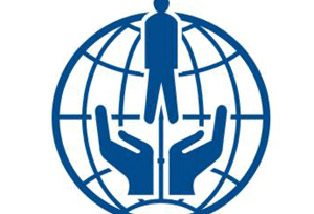Between May 30 and December 31, 2011, the Human Rights Center conducted a study of reporting about judiciary issues in the Georgian media. The research focused on time and space allocation, tone, type, geography and sources of material presented, partial coverage and use of unethical language regarding subjects.
The monitoring covered a study of the following media outlets: newspapers Alia, Resonansi (Resonance), Akhali Taoba (New Generation) and the main Public Broadcaster daily news program, Moambe (8pm).
The Human Rights Center research group concluded that the selected media outlets have problems that are connected to the reporting about judiciary issues and the upholding of professional standards. Materials that were published in the newspapers or aired by the TV channel were frequently unbalanced and partial with no demonstrated separation between facts and opinions.
Another problem concerns the professionalism of the journalists. Very often, they are not familiar with legal regulations and the subject of the report. Sometimes they mix up legal terms, demonstrating poor knowledge of the field (law) they are working in.
The study of the Georgian media exposed articles (Alia) and reports (Moambe) which frequently violated the presumption of innocence.
The problem was especially noticeable in the report “Violence against a Youngster”. It was aired on July 18, 2011 in Moambe and started with the statement by the journalist: “One more case of violence against a young person”. The information revealed that a young boy accused his parents of violent treatment. However, accusations may prove to be groundless. “No one is beating him. He is lying,” says the father. “This is my only child. Why should I beat him?” adds the surprised mother. A neighbor says: “The child and the parents contradict each other. We neighbors don’t know what is going on in reality”. A social agency representative explains: “According to our information, no proof of violent behavior towards the boy has been produced yet.” Distribution of information which is solely based on the testimony of a juvenile and declaring the parents’ behavior to be an act of violence is in blatant violation of the presumption of innocence. The problem was presented in an incompetent, unethical way.
For discussion of judiciary issues, the main news program Moambe (Public Broadcaster TV channel) often used pieces of information released by the Ministry of Internal Affairs and the Prosecutor’s Office. In their reports about criminal cases, journalists presented video materials that were produced by police agencies. They fully shared any official accusations and versions of events. Journalists commonly acted as accusers and violated the presumption of innocence principle.
Journalists on the Moambe program were quite biased during reporting about their colleagues detained for alleged spying (the so called “Photo Reporters’ Case”). The first piece of information concerning events surrounding the case was broadcast on July 18, 2011. Even the title, Means of Recruitment, revealed the partial attitude of the journalists and editorial staff of the program. An unprecedented length of aired material (20 minutes) was accompanied by the absence of balance.
Analysis of the data revealed that, unlike Resonansi (Resonance) and Akhali Taoba (New Generation), Alia lacked academic style. It became especially evident with the texts of the interviews which resembled a chat between friends.
This research was carried out as part of a UNDP project, Development of Media Monitoring Capacities in Georgia, funded by the European Union. The content of the Report is sole responsibility of the media-monitors of the Human Rights Center and it might not reflect the position of the EU, UN and UNDP.
You can see the full version of the Human Rights Center’s reports on the following link.
Human Rights Center




